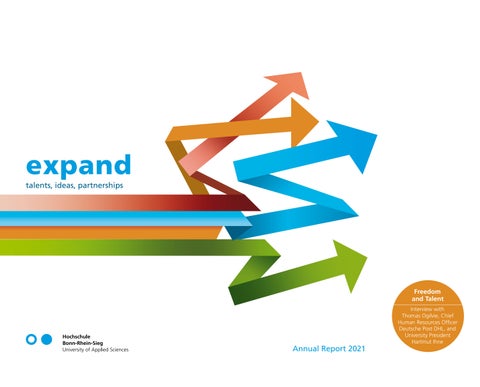
Foundations and Donors Provide Support to Offset Reductions in Federal Art Funding

Title: Private Foundations Step Up as Federal Arts Funding Evaporates
As the Trump administration continues efforts to dismantle federal cultural agencies such as the National Endowment for the Arts (NEA), countless community arts organizations across the United States are facing a dire funding crisis. With the recent cancellation of the NEA’s Challenge America grant program and the potential elimination of major cultural institutions on the horizon, the arts sector is experiencing an alarming shift in how essential programs are being supported.
Yet amid government cutbacks, private foundations and individual donors are responding to the urgent needs of vulnerable organizations. Notably, the Andy Warhol Foundation for the Visual Arts and the Helen Frankenthaler Foundation have committed $800,000 in emergency funds to support 80 small- to mid-sized arts organizations affected by the federal retreat.
Defunding the Arts: What Happened?
The Challenge America program, a long-running NEA initiative offering $10,000 grants to support arts programming in underserved communities, was abruptly canceled for 2025. The cancellation, announced in February 2024, came just months after all grant recipients had already been selected.
According to NEA insiders and shared communications reviewed by Hyperallergic, the decision appears linked to the Trump administration’s broader crackdown on diversity, equity, and inclusion (DEI) policies. Notifications sent to certain grantees declared their projects inconsistent with the president’s “priorities,” which now emphasize funding for military-related initiatives, skilled trades, artificial intelligence, and economic development in select sectors — while omitting marginalized communities, including women and LGBTQ+ populations.
Shifting Priorities and Legal Pushback
Civil liberties advocates, including the American Civil Liberties Union (ACLU), have challenged the legality of the administration’s targeting of “gender ideology” in grant programs. But for arts organizations standing at the intersection of community service and creative expression, the immediate challenge remains financial.
Hundreds of small nonprofits, many with limited reserves, have found themselves scrambling in the wake of rescinded grants. These organizations, which had not only planned but budgeted around anticipated NEA support, are now left seeking alternative solutions amidst immense uncertainty.
Private Foundations to the Rescue
Recognizing the urgency, the Warhol and Frankenthaler foundations stepped in. Rather than requiring applications, the foundations directly identified at-risk organizations formerly approved for the 2025 Challenge America grants. The hope: to mitigate the damage of abruptly lost federal funds and maintain critical operations.
Recipients include:
– Backstreet Community Arts (Georgia): Offers studio space and healing arts programming for those impacted by trauma and mental health struggles in a largely underserved rural community.
– Kids and Art Foundation (California): Provides low-income pediatric cancer patients with therapeutic art programs, merging medical care with creative expression.
– InToto Creative Arts Forum (Alabama): Facilitates workshops targeting veterans and homeless populations, using the arts as tools of rehabilitation and empowerment.
– Latinitas (Texas): An Austin-based nonprofit focusing on empowering Latina girls through culturally relevant STEAM education, including a newly canceled public arts project honoring women of color.
The grants provide not only fiscal lifelines, but moral support. “Their work should not be forgotten, paused, scaled back, or eliminated at the whim of the government,” said a spokesperson from the Warhol Foundation. This sentiment underscores growing concern that the federal government is abandoning its responsibility to nurture the nation’s artistic life — particularly at grassroots levels.
Ripple Effects Across the Sector
Other arts organizations report similar struggles. In Brooklyn, The Brick Theater lost a $20,000 NEA grant for their festival supporting experimental theater. They’ve since sought community donations, recouping more than half of the loss through grassroots contributions.
Art21, producers of the acclaimed PBS series Art in the Twenty-First Century, announced it is fundraising to recoup an $85,000 NEA cut, noting that the NEA had been the organization’s first backer. “The show must and will go on,” said a spokesperson, adding that the instability would have long-term effects on programming and outreach.
A Precarious Future
The Trump administration has proposed not only reducing grants but entirely eliminating agencies such as the NEA, the National Endowment for the Humanities (NEH), and the Institute of Museum and Library Services (IMLS). While previous attempts to defund these institutions have failed in Congress, renewed efforts — aligned with the rollback of DEI programs and culture war policies — are gaining traction.
This uncertainty has further fueled local calls for support. In New York City, cultural groups recently rallied at City Hall, requesting a $30 million increase in the Department of Cultural Affairs budget to counteract lost federal funds.
But even private funding isn’t guaranteed. Some institutions report donors have withdrawn support. The Smithsonian National Museum of African Art, for instance, delayed an LGBTQ+ art exhibition, citing a shift in the fundraising climate as one reason.
Conclusion: A Call to Action
The turmoil surrounding arts funding in the U